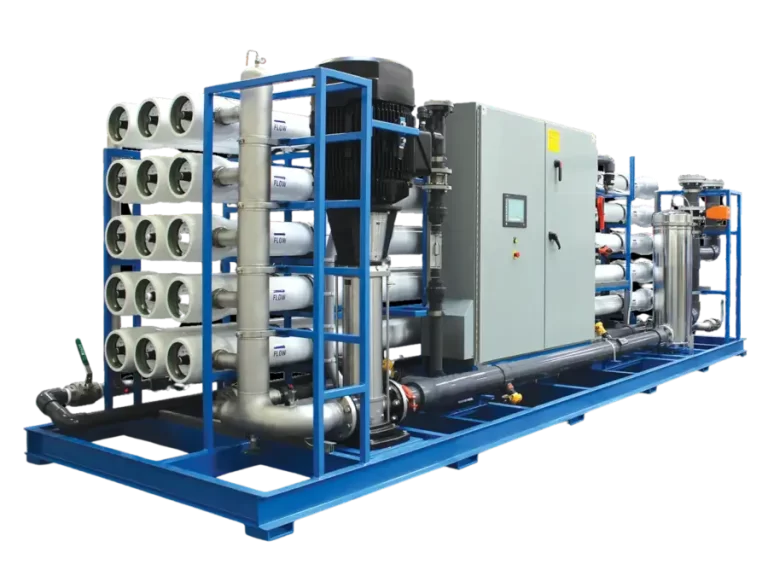
What it is Reverse Osmosis (RO)
How it works
Pressure Application
Water is subjected to pressure on the side with a higher concentration of dissolved solids. This pressure forces the water through the semi-permeable membrane.
Membrane Action
The membrane selectively allows water molecules to pass while blocking dissolved solids and other contaminants, effectively purifying the water.
Osmotic Pressure
The amount of pressure required depends on the concentration of dissolved solids; higher concentrations necessitate greater pressure.
Applicable Industries
Key Features

Effective Contaminant Removal
Capable of removing a wide range of contaminants, including salts, minerals, bacteria, and organic compounds.

Energy Efficient
Generally, requires less energy compared to other purification methods, making it a cost-effective choice for many applications.

High-Quality Output
Produces water that meets strict purity standards, making it suitable for various uses.

Versatility
Adaptable for various scales and applications, from residential systems to large industrial setups, making it a flexible solution for diverse water treatment needs.

